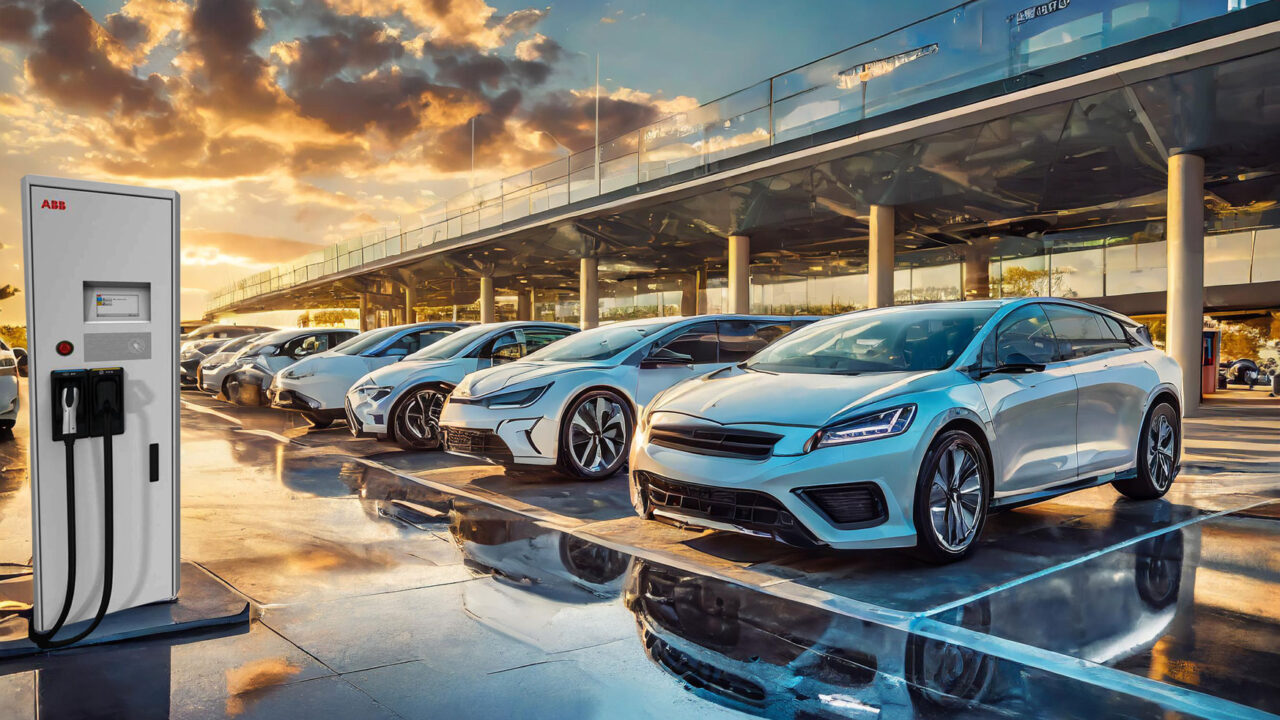
Between 2021 and 2022, the alternative fuel and electric vehicle (EV) market nearly doubled in size, with electric vehicle registration surging from 3.1% to 5.6% of light vehicle registrations. Between well-established players in the EV market like Tesla and legacy automakers like Ford and Chevrolet throwing their hats into the ring, the opportunities for consumers to make the switch to EVs are only growing more plentiful.
Dealers across the US have unique opportunities to capitalize on the expanding EV market, attract new customers interested in electric driving and alternative fuel vehicles, and expand their business operations.
By staying informed on the latest trends and best practices in the EV market, and providing education and support to your customers, you can establish your business as a leading electric vehicle dealership and ride the cutting edge of the evolving EV market.
3 Ways Dealers Can Sell More Electric Vehicles Through Consumer Education
Since the days of the Model T, gas cars have been practically the only game in town. While EVs and hybrids have been around for a while now, adoption was originally slow as the nascent alternative fuel industry and EV infrastructure found their footing. But recently, the EV market has been gaining momentum at incredible speed.
Switching to anything different is always a little risky or nerve-wracking, and for many people, EVs are still very new. By acting as a trusted and reliable source of information and resources for EVs, your electric vehicle dealership can help consumers who are interested but apprehensive about adopting new technology by allaying their worries and concerns and educating them about the benefits of electric vehicles.
Let’s take a look at three ways you can seize electric vehicle dealership opportunities and sell more by empowering consumers with the information they need to feel confident about making the switch to EV.
Electric Vehicles vs. Gas Cars
EV dealerships are in a unique position to educate consumers on the benefits of electric vehicles compared to gas vehicles. Many potential EV owners have some awareness of the advantages but aren’t yet certain if those benefits outweigh the current costs of EV adoption enough to make switching to EVs worthwhile.
There are three primary benefits to EVs that consumers are interested in understanding:
Environmental Impact
Unlike gas-powered vehicles, EVs produce zero tailpipe emissions and zero greenhouse gasses (GHGs), helping individuals shrink their carbon footprint. In urban areas where air pollution is a major problem, mass adoption of EVs can make the air cleaner and contribute to positive impacts on public health by decreasing the number of pollutants released by gas and diesel vehicles.
EVs are not completely emission-free, as the electricity that powers them can still come from GHG-emission sources, such as natural gas and coal plants. However, even when powered by fossil fuels indirectly, EVs still contribute fewer emissions overall than gas vehicles.
The growing prevalence of renewable energy makes EVs more environmentally friendly year by year, as more of the nation’s electricity grid makes use of solar, wind, and other carbon-free energy sources.
Cost Savings
Electricity is cheaper than gas. While the cost of charging up an electric vehicle at home or at an EV charging station depends (on factors such as electricity rates in your area, charging speed, or any fees that may be associated with public charging stations), it beats getting gouged at the gas pump.
EV owners also save money (and their sanity as well) by dealing with fewer maintenance issues and less frequent service needs overall. It’s never fun to take a car into a shop, but fortunately, EVs can make it a bit less painful.
SEE ALSO: What Is Electric Vehicle Fleet Management?
EVs contain fewer moving parts than gas-powered vehicles, namely because the engine, transmission, and exhaust system are replaced by a battery. EVs don’t require oil or coolant changing like gas vehicles do and utilize regenerative braking technology that reduces wear and tear on brake pads.
Due to its simpler design, longer-lasting components, and fewer repair needs, EV vehicles don’t need as much attention as those running on gas. The lower costs of fuel and maintenance can result in significant savings over the lifetime of an EV.
That said, there are unique electric vehicle maintenance issues consumers should be aware of:
- Special maintenance for EV battery packs
- Regular electrical system checks, including the charging system and DC-DC converter
- Regular tire rotations and checks for wear and tear
- Cooling system maintenance to prevent overheating
Driving Experience
Overall, EVs are known to deliver a smoother driving experience than gas vehicles. In an EV, the battery provides instant torque—the moment you press your foot to the acceleration pedal, the battery sends a huge amount of voltage directly to the wheels without needing to pass through driveshafts or gears, enabling very spontaneous acceleration compared to gas-powered vehicles.
Thanks to this instant torque, EVs can accelerate smoothly and turn very quickly at very high speeds. And with no internal combustion engine, EVs are super quiet as well.
It’s one thing to be told these things, but for potential EV customers, seeing is believing—or rather, driving is believing. Potential EV customers might worry that the smoother driving experience of EVs might be difficult to adjust to after a lifetime driving gas vehicles. As an EV dealer, you have the means to help them get a firsthand experience of driving an electric vehicle and put these concerns to rest.
Making test drives of your available EV models easy and convenient to schedule will encourage customers of your electric vehicle dealership to take the wheel and see for themselves what the driving experience is like.
EV Charging Infrastructure
For many would-be electric vehicle owners, range anxiety is a major impediment to adopting EVs. Across North America, gas stations are ubiquitous. Drivers can typically rest assured that so long as they aren’t in the middle of nowhere when their tank is running on empty, there’s a place to fill up not too far away.
However, EV infrastructure is still developing across North America. For many would-be EV adopters, this can be a serious concern in switching from gas to electric.
As an electric vehicle dealership, you can help customers allay their worries around range availability by providing statistics on the reach of various EV types. How far a single EV battery charge can get depends on the specific make and model of your vehicle, as well as driving conditions and driving style. Modern EVs have a range of between 100 to 400 miles on a single charge. For example:
- Tesla Model S Long Range: Up to 405 miles on a single charge
- Chevrolet Bolt: Up to 259 miles on a single charge
- Nissan Leaf: Up to 150 miles on a single charge
- Hyundai Kona Electric: Up to 258 miles on a single charge
You can also make consumers aware of the US Department of Energy’s Alternative Fuels Data Center, which includes a wealth of information, including a map of public EV charging station locations throughout the US.
Other responsibilities as an electric vehicle dealership consist of ensuring your consumers make an informed choice about the EV charging equipment they use in their homes.
Government Incentives
The cost of ownership for EVs may be less expensive overall compared to gas vehicles, but EVs often have high upfront costs due to their novelty and required equipment, such as home EV chargers. Many potential EV consumers might not be aware of the government incentives that can help. These rebates and tax credits provide consumers the opportunity to take advantage of the benefits associated with EVs.
Some makes and models of EVs are eligible for more government financial incentives than others. Buying an EV or fuel cell vehicle that meets the criteria can qualify your customer for EV credits on their federal income taxes. Various states across the US also have their own incentive programs.
As a trusted EV dealer, staying up to date on the government programs available for individual EV purchases or EV charging infrastructure installations helps you put customers’ concerns to rest regarding the higher upfront costs of EV adoption. The US Department of Energy has a wealth of information available online about the latest updates in EV laws, incentives, and regulations on a federal and state basis.
Be sure to make your customers aware of any non-financial incentives for EV adoption available in your area as well, such as carpool lane access or free and discounted parking.
From the latest models and upcoming EVs to information on electric vehicle maintenance, EV charging infrastructure and more, electric vehicle dealerships can play a vital role in keeping consumers informed and help them make confident purchasing decisions.
The EV market is still young and in constant flux. If you can’t keep up, your dealership and your customers could fall behind in this period of rapid growth and innovation.
At Winn-Marion, we provide deep product knowledge and hands-on experience to help you transform your business into a leading EV dealership. From installing charging stations on your site to making your business a hub for EV drivers, to empowering your staff to provide peerless guidance to your customers on EV maintenance, charging, and more, we’re here to help you grow your business as an EV dealer and attract more customers.
FAQs
What are the primary benefits of electric vehicles compared to gas cars?
- Electric vehicles produce zero tailpipe emissions and greenhouse gases, reducing the carbon footprint and contributing to cleaner air and public health.
- Electric vehicles offer cost savings through cheaper electricity compared to gasoline, as well as lower maintenance costs due to fewer moving parts and less frequent maintenance needs.
- Electric vehicles provide a smoother driving experience with instant torque, quick acceleration, and quieter operation.
How can electric vehicle dealerships help consumers overcome concerns about EV charging infrastructure and range anxiety?
- Electric vehicle dealerships can provide information on the range of various makes and models of electric vehicles, helping consumers understand how far a single charge can take them.
- Dealerships can also inform consumers about resources such as the US Department of Energy’s Alternative Fuels Data Center, which offers a map of public EV charging station locations.
- By offering statistics and educating customers about the availability and growing network of charging infrastructure, dealerships can help alleviate concerns about range anxiety.
What government incentives are available for electric vehicle purchases and EV charging infrastructure installations?
- There are various government incentives, such as rebates and tax credits, that can help offset the higher upfront costs of EV adoption. These incentives vary based on the make and model of the EV and the customer’s location.
- Customers may qualify for EV credits on their federal income taxes by purchasing an eligible EV or fuel cell vehicle. Additionally, different states across the US have their own incentive programs.
- Staying up to date on the latest information from the US Department of Energy and local government sources can help dealerships inform customers about the available incentives.
How can electric vehicle dealerships stay informed and up to date on the latest trends and information in the EV market to better serve their customers?
- Electric vehicle dealerships can stay informed by regularly researching and following industry publications, news updates, and market trends related to EVs.
- Participating in industry conferences, workshops, and training programs can provide valuable insights and knowledge about the evolving EV market.
- Establishing partnerships with manufacturers, suppliers, and industry experts can help dealerships access the latest information, product knowledge, and best practices in the EV industry.
- Utilizing online resources and educational materials from reputable sources, such as the US Department of Energy, can also aid in staying up to date on EV-related information.
